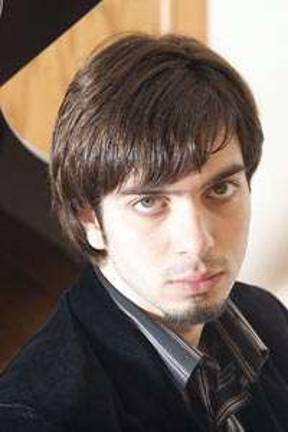Julliard Jazz Master Plays Right Keys

Meet Christopher Ziemba, jazz pianist at Juilliard "There are no mistakes in jazz," the old saying goes, and Christopher Ziemba is no exception. A pianist in Juilliard's prestigious Artists Diploma Ensemble, he arrived on the Upper West Side last fall from Rochester. The 25-year-old is already fully immersed in the musical scene that is New York City. A typical week for him could include performances at Dizzy's Club, the Central Park Boathouse and David Letterman's birthday party. Since he doesn't have a piano in his apartment, he spends much of his day at Juilliard, ready to compose music on their Fazioli grand piano. West Side Spirit: When did you start playing? Christopher Ziemba: From what my parents tell me, we had an old family upright, and as soon as I could reach the keys, I started playing. I used to play nursery rhymes that I had picked up from ear. I grew up in a musical environment; my father is a percussionist in the Buffalo Philharmonic orchestra. How did you come to specialize in jazz? I had taken classical piano lessons for 10 years. When I got to high school, they needed a pianist for the jazz band. There, it was either sink or swim-for the first year, it was mostly sink. I went on to the Eastman School of Music in Rochester for my undergraduate and master's degrees. I was a double major in jazz piano performance and music education. My master's is in jazz piano. So then you went to Julliard? When I finished school, I expected to move to New York, but it wasn't going to be in the context of school. Then I took a lesson from Frank Kimbro, who is part of the piano faculty at Juilliard, to prepare for a competition. At the end of the session, he said, "We have an opening in our Arts Diploma Ensemble." Normally, auditions are held in February, but this was already mid-May. How did you end up mastering jazz? My mother tells me that I really didn't like it in the beginning. Having been trained classically, it was frustrating. With classical music, you're given a piece and you learn the notes on the page. In jazz, you have to read chords. You're responsible for improvising, making up whatever chords you want to play. It's like its own language. The only way to get really good at it is to spend time listening to and analyzing records. What's the biggest compliment ever given to you? Recently, I was playing at the Thalia Cafe at Symphony Space. There was an older man and his caretaker watching. Whenever we performed a familiar standard, he would sing along, even though we were mostly a background attraction. After we finished, I went over to say hello. He introduced himself as the cousin of drummer Roy Haynes, a jazz legend who had played with many of my past heroes and still plays around town in his eighties. He told me I sounded just like pianist Bud Powell, with whom Roy once played. Powell is considered one of the most important figures in the history of jazz piano. For a list of Ziemba's upcoming performances, visit www.chrisziemba.com.